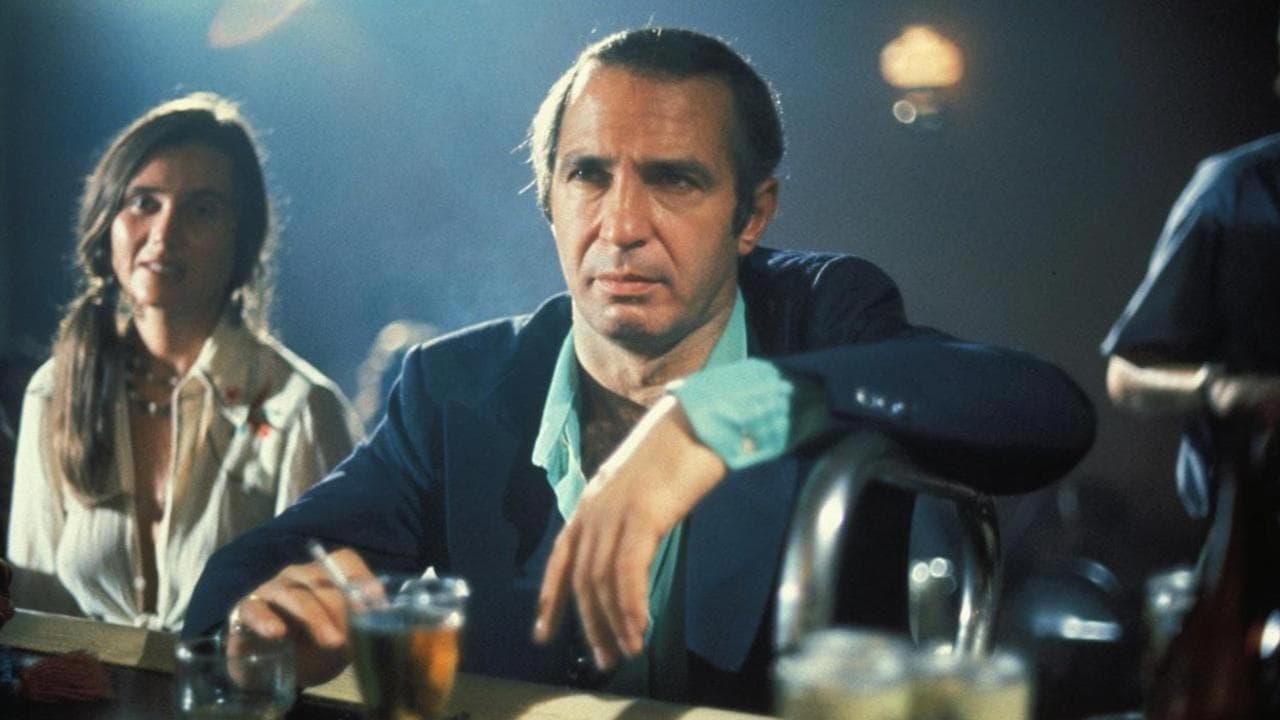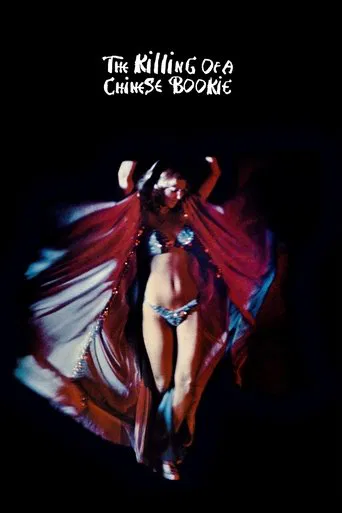

Cosmo Vitelli (Ben Gazzara) owns the burlesque club Crazy Horse West in California. Business is a little slow. After paying off his gambling debt, he promptly loses $23k more at a private casino. The boss calls in the debt and forces him to kill a minor Chinese bookie to clean the slate. Only the minor figure turns out to be a major gang leader.There is something hypnotic about John Cassavetes' directing style. Ben Gazzara is charismatic. I watched the 135-minute version. Even the long rambling burlesque shows are fascinating. It's supported by a gangster story that provides the movie with its drive. I do wish that Cassavetes would film the action with more intensity. His style doesn't work as well with the action scenes. Also after the final shootout, I rather have the movie end quicker.
... View MoreA proud strip club owner (Ben Gazzara) is forced to come to terms with himself as a man, when his gambling addiction gets him in hot water with the mob, who offer him only one alternative.Gazzara has made a career of playing seedy characters. Although he regularly worked with Cassavetes, younger audiences might know him best from "Roadhouse" or "The Big Lebowski". They would not be disappointed by his portrayal here. Cassavetes regulars Al Ruban and Seymour Cassel also appear, though Gena Rowlands is noticeably absent.Cassavetes' best work is widely regarded to be either "Faces" or "A Woman Under the Influence", but a case could be made for this one, as well. His earlier work relied heavily on improvisation, and some might argue they suffered from too much "small talk" adding minutes to the running time. Here the plot is much more linear, much tighter to a script. As Larry Karaszewski has noted, it is much more "high concept" than his earlier work.Phillip Lopate wrote, "The plot's biggest gamble is to make Cosmo, this likable if screwed-up schnook, actually go through with the killing. Is it plausible that someone so seemingly decent would do such a thing?" But, of course, this is the whole point... when you must choose between killing for the mob or being killed by the mob, your actions may no longer be decided by whether you are a "decent" person.The 1978 re-cut of the film is even tighter, removing much of the unnecessary night club footage, which is unusual (considering most director's cuts are longer than the theatrical releases). In some ways, it is a different film, and making comparisons between the two is a review in itself.
... View MoreWhen Los Angeles strip club owner Ben Gazzara (as Cosmo Vittelli) can't pay a $23,000 gambling debt, mobsters order him to carry out "The Killing of a Chinese Bookie". At first, this seems like a grossly deficient plot, because Seymour Cassel (as Mort Weil) and his cronies have more than enough muscle to carry out the task. However, when you see how the deed is done, you'll understand why Mr. Gazzara is chosen. Like the viewer, he is in the dark. This film includes some extraneous material, and the there are several instances when an edit is seemingly missed. This is how you know director John Cassavetes is there, behind the curtain, slowly revealing his protagonist's naked psyche; it's a strip tease.******** The Killing of a Chinese Bookie (2/15/76) John Cassavetes ~ Ben Gazzara, Timothy Carey, Seymour Cassel, Robert Phillips
... View MoreDirected by John Cassavetes, star of Rosemary's Baby, this was another film title I remembered spotting in the 1001 Movies You Must See Before You Die book, and naturally was very keen to give a go. Basically in California is Crazy Horse West strip club owner Cosmo Vitelli (Buffalo '66's Ben Gazzara), he does not talk much apart from during business deals, he is a war veteran, and he is an additive gambler. His gambling habit has got in a spot with the mob as he owes them a lot of their money, £23,000 to be precise, and in a poker game in an illegal casino he is distraught to lose the amount he needs to pay the debt. They pressure him to pay, but then they give him a proposition that if he kills a Chinese bookie they want out of the way they can forget the debt all together, he is apparently a smalltime businessman and his death will no consequence. Of course in reality he is actually a big hit as he is the mob rival and head of the Chinese mafia, but Vitelli does manage to sneak into his compound, kill the "bookie", plus two of his family members, and escape the gunfire of his bodyguards. He realises it was all a setup and they predicted he would not come out of the hit alive, and he does manage to get some kind of revenge against those who double-crossed him, but it is a question at the end what will happen to Vitelli and his empire next. Also starring Timothy Carey as Flo, Azizi Johari as Rachel, Meade Roberts as Mr. Sophistication, Seymour Cassel as Mort Weil, Alice Friedland as Sherry, Donna Gordon as Margo Donnar and Robert Phillips as Phil. Gazzara gives a good cool but dominating performance as the pressurised businessman who thinks he can get away from any trouble, but is actually having to face up to realities, the story may have confused me a little after the "killing" of the title, but overall I found it quite a gripping story, and certainly a most watchable crime thriller. Very good!
... View More